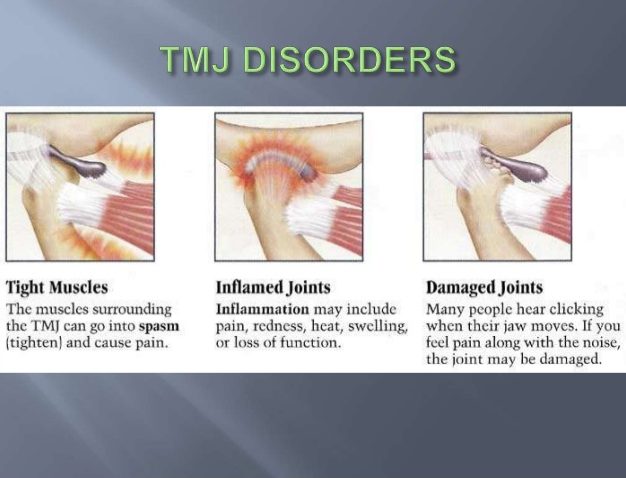What is TMJ disorder?
The Temporomandibular Joint (TMJ) is the only joint in the entire body that has this unique function: it holds the lower jaw and helps its function and movement. Differing from the rotating motion of other joints, the TMJ makes a distinctive sliding movement that helps enable a person to chew, bite, and speak. The TMJ is surrounded by strong muscles that work together to cause perfect jawbone movement. However, these movements have to take place in a controlled manner. Any dysfunction in the joint or in the surrounding muscle that is affecting the joint is termed as TMJ disorder. TMJ dysfunctions are treated according to their level of seriousness. The specialist team at Your Caring dentist is highly trained and experienced in treating TMJ disorders according to the level of damage, limitation it causes, and dysfunction it creates.
What are the causes & symptoms of TMJ disorder
Many reasons can contribute to TMJ dysfunction. These include trauma, improper teeth alignment, chronic and excessive clenching and grinding of the teeth, congenital differences, arthritis, infection, and some auto-immune and inflammatory diseases. Signs and symptoms of TMJ disorders include
- frequent dislocation of the joint
- limited or restricted opening of the jaw
- pain in the joint when it is not moving
- a clicking sound while opening or closing the mouth
- improper movement of the lower jaw while opening the mouth
- trismus (also called lockjaw)
- pain when opening the mouth
- decreased muscular strength around the joint


How can TMJ be treated?
The treatment options for TMJ dysfunction vary according to the level of impact the disorder has on the patient. In most instances, conservative management like medication and physiotherapy along with treating the cause helps to relieve the symptoms. However, a more complex condition requires surgical management. Our oral maxillofacial surgeons are trained to make a precise diagnosis and prescribe a treatment plan that is tailored to meet your needs.
certification
Trusted By















